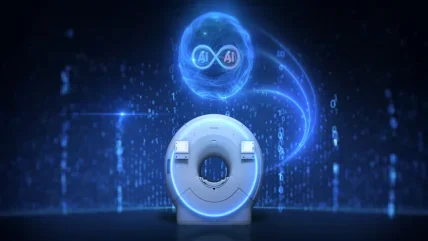
Royal Philips has launched several artificial intelligence (AI)-based technologies for magnetic resonance imaging (MRI) for precise imaging and to improve patient outcomes.
The first technology is SmartSpeed Precise technology, powered by Dual-AI engines.
The advanced technology builds on Compressed SENSE and SmartSpeed. It is designed to offer faster scans and better image quality.
It improves scan speed and diagnostic image quality, expanding AI-driven efficiency across the entire Philips MR portfolio. This includes existing customer systems.
SmartSpeed boosts efficiency by reducing patient wait times and optimising scanner use.
The technology enhances productivity, enabling scans up to three times faster while maintaining image quality.
Its dual-AI engine improves image sharpness by 80%, providing clearer visualisation for more accurate diagnoses, the healthcare tech firm said. This combination of speed and precision helps radiologists detect subtle abnormalities and improve patient outcomes.
Philips’ MR Workspace R12 introduces a ‘zero-click’ workflow, streamlining the entire imaging process from scan to report generation. This reduces manual intervention, boosts patient throughput, and helps reduce backlogs.
The AI-powered SmartExam feature automates 80% of MR procedures, standardising workflows and improving efficiency.
Smart Reading uses AI platforms such as icobrain (icometrix) for neurology.
With MR Workspace R12, SmartSpeed Precise, and Smart Reading, Philips advances AI in MRI, enhancing efficiency, accuracy, and accessibility.
Philips MRI Global Business Leader Ioannis Panagiotelis said: “Perfectly aligned with this year’s ECR theme, ‘Planet Radiology’, which emphasises better patient care while protecting the planet, Philips is tackling two critical challenges: expanding global access to precision care and advancing environmental sustainability.
“By integrating high performance-enhancing AI engines across our entire portfolio of new and installed helium-free BlueSeal scanners, we are revolutionising MRI efficiency while reducing environmental impact.
“These innovations ensure that more patients worldwide can access high-quality imaging, while healthcare providers benefit from more sustainable and cost-effective operations.”
Philips is also launching MR Workspace software release 12, which is designed to streamline workflows and help clinicians deliver more accurate diagnoses.
Additionally, the Dutch healthcare technology firm is introducing the next-gen helium-free 1.5T BlueSeal MRI, a wide-bore MR scanner.
These innovations, powered by AI-driven technology, demonstrate how Philips is advancing patient outcomes and meeting the evolving needs of global healthcare providers.
Recently, the healthcare technology firm partnered with Mass General Brigham (MGB) to integrate AI into healthcare data management.






